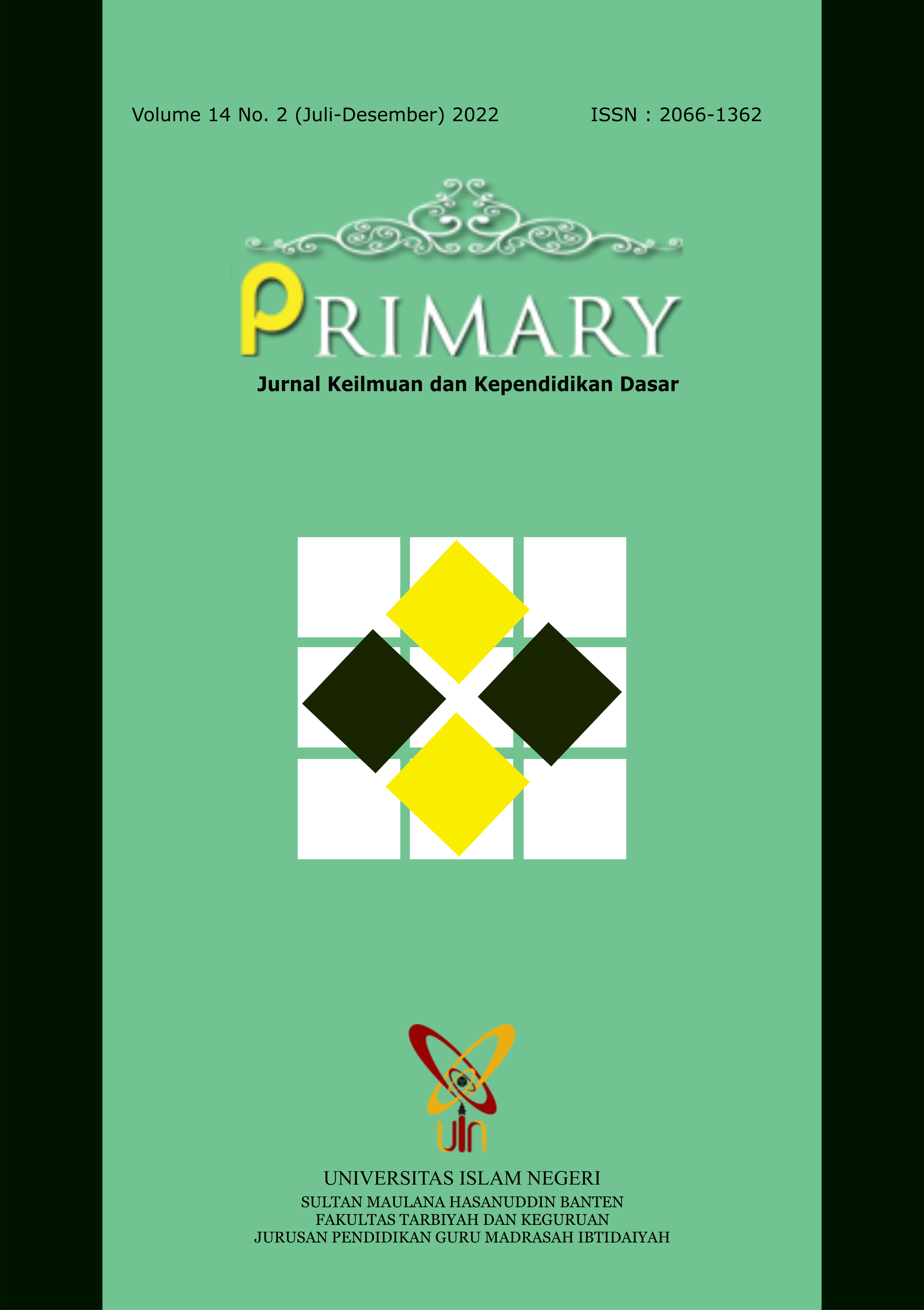PENGEMBANGAN BAHAN AJAR FABEL BERBASIS LINGUISTIK INTELLIGENCE DI KELAS IV SEKOLAH DASAR
 DOI:
DOI:
https://doi.org/10.32678/primary.v14i2.6637
 Abstract viewed : 207 times
|
Abstract viewed : 207 times
|  PDF (Bahasa Indonesia) downloaded : 204 times
PDF (Bahasa Indonesia) downloaded : 204 times
Keywords:
Teaching Materials, Fables, Linguistic IntelligenceAbstract
Linguistic intelligence is a person's ability to use language effectively. This intelligence is one that still really needs to be developed, especially in elementary school students. The problem that often arises is that students have difficulty composing stories using their own language. The purpose of this research is to develop teaching materials in the form of fables to help students master effective and efficient language styles, both written and spoken. The method used in this research is Research and Development, to collect data using a questionnaire and the data collected is analyzed with descriptive statistics. media validation of fable teaching materials based on linguistic intelligence involved 3 experts to test the feasibility of the product, namely 2 lecturers as media experts, 2 lecturers as linguists, 1 lecturer, and 1 teacher as material experts. The media validation results obtained a percentage of 89.44% from two media experts, 87.81% from two linguists, and 94.79% from two material experts so an average of 90.63% was included in the "Very Eligible" category. Students' responses to linguistic intelligence-based fable teaching materials media involved 28 students obtaining a percentage of 9.47% including the "Very Good" category
Downloads
Downloads
Published
How to Cite
Issue
Section
License
Copyright (c) 2022 Zulfa Maulia, Rina Yuliana, Tatu Hilaliyah

This work is licensed under a Creative Commons Attribution-ShareAlike 4.0 International License.
PRIMARY JOURNAL: https://ftk.uinbanten.ac.id/journals/index.php/primaryis licensed under aCreative Commons Attribution-ShareAlike 4.0 International License
An author who publishes in PRIMARY: Jurnal Keilmuan dan Kependidikan Dasar agrees to the following terms:
- The author retains the copyright and grants the journal the right of first publication of the work simultaneously licensed under the Creative Commons Attribution-ShareAlike 4.0 License that allows others to share the work with an acknowledgement of the work's authorship and initial publication in this journal
- The author can enter into separate, additional contractual arrangements for the non-exclusive distribution of the journal's published version of the work (e.g., post it to an institutional repository or publish it in a book) with the acknowledgement of its initial publication in this journal.
- The author is permitted and encouraged to post his/her work online (e.g., in institutional repositories or on their website) before and during the submission process, as it can lead to productive exchanges, as well as earlier and greater citation of the published work (See The Effect of Open Access).
The names and email addresses entered in this journal site will be used exclusively for the stated purposes of this journal and will not be made available for any other purpose or to any other party.










